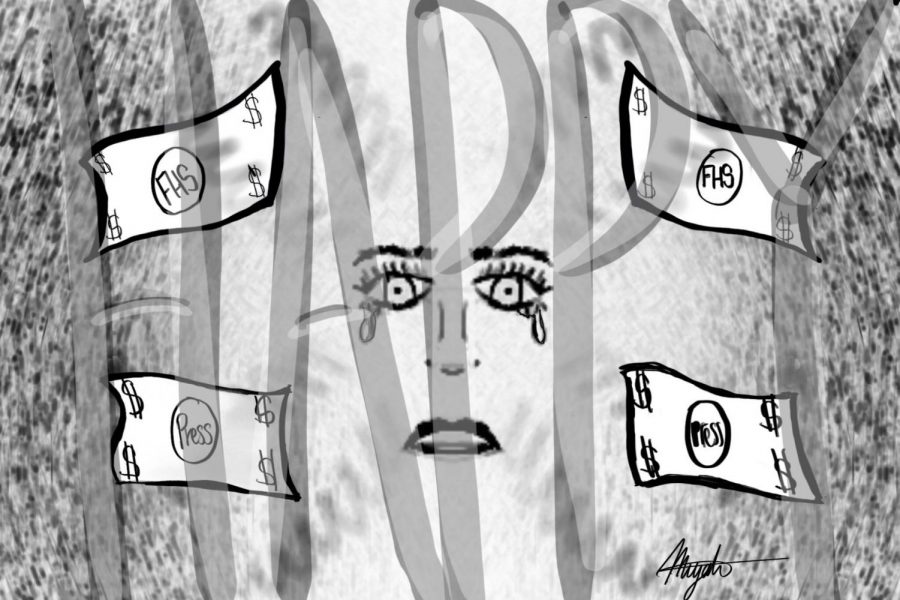Happiness: not for sale
As life progresses, money becomes a bigger part of everyday life, but the value of money is different for everyone. Money, in reality, is just a piece of paper and is a symbol of happiness, wealth and success in the modern day world. Many people believe that the more money they have the happier they will be, which is simply not the case.
“As you get older the value of money changes, but the effects they have stay the same whether you’re wealthy, in the middle class or below; happiness can be found for free and money doesn’t matter at that point,” Freedom alumni Ryan Edder said.
Happiness can be found in many different ways without money. For example, happiness can be found at a court, field, art studio, dance studio, family dinner, friend’s birthday or even doing something as simple as listening to your favorite song.
Edder continues by saying, “Money can’t buy important memories and time I have when I’m with family or friends, which is truly important.”
Money can play a role in life, but the initial feeling of happiness does not come from the amount of money or the amount people are able to spend.
“Money does not mean much when it comes to happiness because you can not buy it because it isn’t a material. Happiness is more of a state of mind,” sophomore Andrew Hodnick said.
Consider an experiment led by psychologist Sonja Lyubomirsky about doing kind acts for others. For six weeks, researchers asked people to perform five kind acts one day a week. Examples include donating blood, writing a thank you letter or visiting an elderly relative. People experienced a significant increase in happiness when they did kind acts for others. Every act of kindness they performed was of no charge.
What really affects our happiness more than how much money we have and how we handle anything is within our own attitude towards our interpretation of value in terms of money.
“Not everyone finds happiness in a huge house or a fast car, it’s more of a social status people want which is not happiness; it’s more based on self-confidence,” Edder said.
No matter how much money people may have or are able to spend, it will never be enough, simply because that’s human nature.
“When people want something, they get it, which gives them the illusion of happiness when in reality it is just sub-siding authentic happiness,” Lyubomirsky said.
In saying that, money is still very important. It is 100 percent essential for everyday life for things like food, bills and many other necessities. Happiness is not one of them, whether you are wealthy or poor.
Edder elaborates on that when saying,“You’re never truly rich or wealthy until you have something money can’t buy: happiness.”



